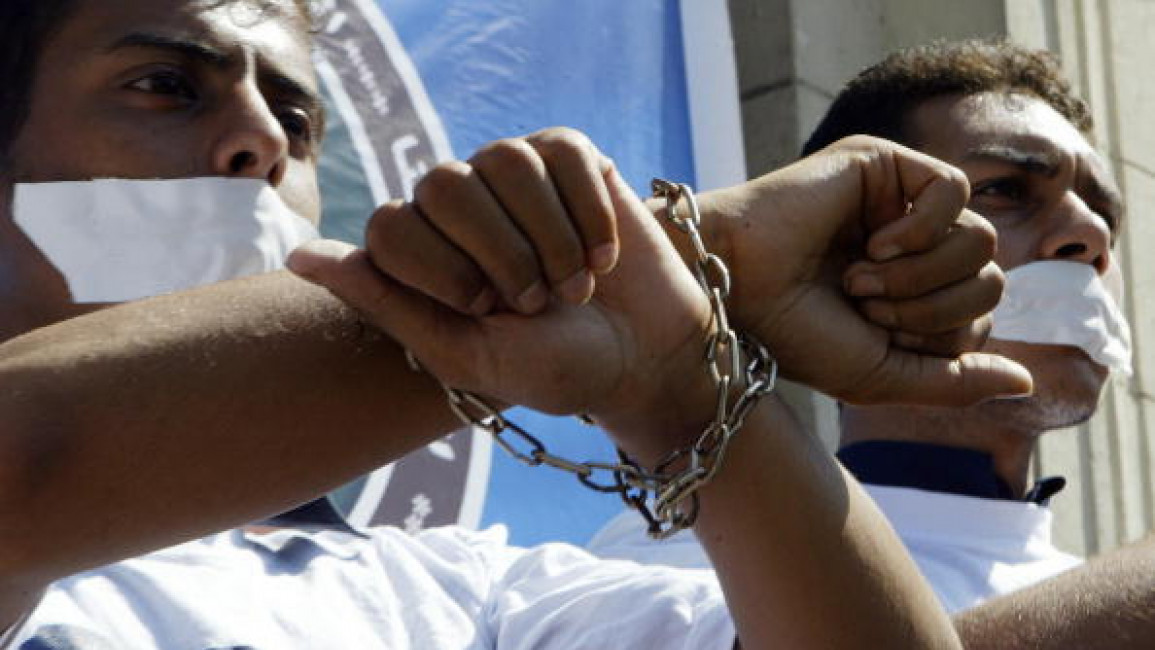Egypt activist Hossam Bahgat's 13-year ordeal ends as NGO charges are dropped
The final chapter in a 13-year-old criminal case in Egypt against domestic NGOs, mostly rights groups, has finally closed over "insufficient evidence".
An Egyptian investigative judge on Wednesday dropped charges against five high-profile human rights groups accused of receiving foreign funding with the alleged intention of harming the state.
The rights groups were the final batch of dozens of other NGOs under investigation in, what was known locally as 'Case 173', who have since been acquitted.
High-profile human rights defender Hossam Bahgat called for an official apology and compensation for "the psychological and material damages" that he and his fellow rights advocates and lawyers endured during the process, which he described as "a bogus case".
The judge also lifted travel bans against the directors and staff of the groups affected by the case and unfroze their assets.
"After 13 years under criminal investigation [due to] my human rights work as head of the Egyptian Initiative for Personal Rights and eight years under a travel ban and a freeze on all my assets and my only bank account without trial, facing up to 25 years in prison, l and other colleagues were exonerated today," Bahgat posted on his Facebook page.
Human rights workers operating without legal registration or accepting unauthorised foreign funding could be imprisoned for life as per Egyptian law. Life imprisonment in Egypt amounts to 25 years.
“[The] investigation into our work [carried out] by six consecutive investigating judges found ‘insufficient evidence to initiate criminal proceedings’ and lifted those ‘provisional measures’ only imposed to punish us for doing our work,” Bahgat argued.
Gamal Eid, ex-director of the now-dissolved Arabic Network for Human Rights Information (ANHRI), another organisation among the five, sarcastically posted on his Facebook page a comment about the trial.
"I learned about the travel ban against me [almost] eight years ago at the Cairo airport, the freeze of my assets from newspapers [shortly afterwards]; and today I knew through the media that the case has been dismissed," he wrote.
"I hope it is a decision to correct a mistake and restore the rule of law. [But] the real bliss could be realised [only] with the return of the innocent unfairly imprisoned to their loved ones," added the renowned lawyer.
A few months after the ouster of longtime leader Hosni Mubarak by the 2011 Revolution, the Egyptian subsequent governments initiated an ongoing investigation into the funding of local and foreign groups.
Three years later, the authorities stepped up the crackdown against civil society, a year after the then-Defence Minister Abdel Fattah al-Sisi and the military overthrew Islamist president Mohamed Morsi in a coup.
In 2016, an Egyptian court also froze the Egypt-based assets of several of the organisations and imposed travel bans on their staff, as well as opening investigations into new groups and individuals.
Other than EIPR and ANHRI, the same charges against the three noticeable groups: El-Nadeem Centre for the Rehabilitation of Violence and Torture Victims, the Arab Penal Reform Organisation, and the Cairo Institute for Human Rights Studies, were dropped on Wednesday by the same court.
Bahgat, meanwhile, called for dropping “outstanding charges and lifting travel bans and asset freezes imposed since against his other EIPR colleagues Mohamed Basheer, Karim Medhat Ennarah, and Gasser Abdel-Razek.
In 2020, the three men, administrative manager Mohamed Basheer, head of criminal justice unit Karim Ennara, and the EIPR’s executive director Gasser Abdel-Razek, were charged by state security prosecution with "membership of a terrorist organisation" and "using social media accounts to publish false news and information that may harm public peace and security".
Local and international rights groups have frequently accused the Sisi government of overseeing the country’s worst crackdown on human rights, media, and freedom of expression in decades.
Thousands of government critics, including activists and journalists, are behind bars.
bars.



